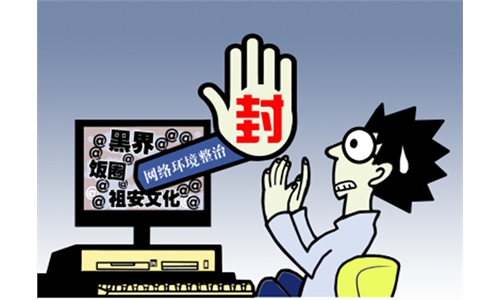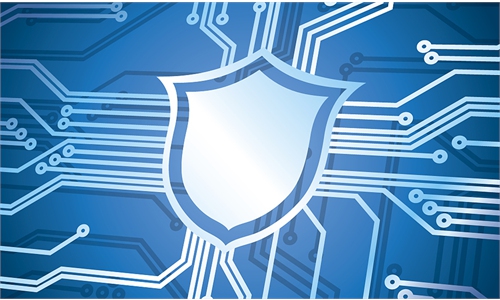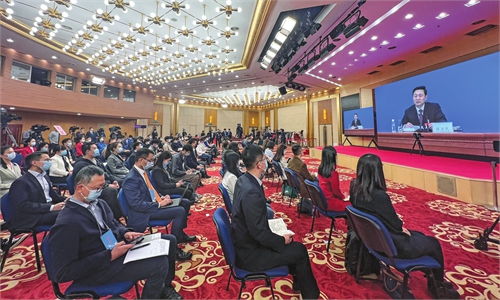
The fifth session of the 13th National People's Congress (NPC) opens at the Great Hall of the People in Beijing, capital of China, March 5, 2022. Photo:VCG
Several Chinese lawmakers and political advisors proposed during the ongoing two sessions measures to further crack down on cyber violence, such as including serious cyber violence incidents in public prosecution cases and imposing stricter punishment on violators.
The country has issued a number of judicial interpretations and regulations to restrict and punish cyber violence. But due to the hidden nature of the internet, there are problems such as the low cost of illegal acts and difficulties in law enforcement and rights protection in specific practice, Wei Shizhong, a member of the Chinese People's Political Consultative Conference (CPPCC) National Committee and deputy head of the Henan University of Science and Technology, told the Global Times.
Wei suggests strengthening the responsibility of internet platforms by improving the legal system, and to "include cyber violence that seriously harms society into the scope of public prosecution cases," so as to effectively curb the unhealthy phenomenon.
It costs a lot for victims to safeguard their rights; the crime of insulting and defamation stipulated in China's Criminal Law is not usually a public prosecution, therefore it requires the victim to initiate private criminal cgarges, and it is difficult for an individual to provide evidence, according to Wei.
The topic - including serious cyber violence into public prosecution cases - has so far gained over 35 million clicks on Weibo, with most netizens supporting the advice to clean up the internet. Henan-based Zhengguan Video launched a vote on Weibo, where over 90,000 people voted in support of the proposal within a few hours.
"It only takes one day to conduct cyber violence, but one year or longer might be needed for the victim to safeguard their rights," one netizen wrote via Weibo, calling on the authorities to take action soon to effectively curb cyber violence and protect every citizen.
Even recently there have been some tragedies caused by cyber violence. A teenager in North China's Hebei Province, who claimed that he had been suffering from cyber violence, committed suicide in January this year. Weibo administrators later closed 40 accounts permanently for illegal posts attacking the teenager.
Despite such cases, China has been making efforts to build a clean internet environment. During an internet cleanup campaign jointly launched by six ministries and departments from June to August in 2021, over 400,000 pieces of vulgar and harmful information were removed and 4,800 websites were shut down, according to the authorities.
Lu Man, a deputy to the National People's Congress (NPC), China's national legislature, said that there is no specific law to punish cyber violence, but the damage can be intangible and long-term, especially for minors due to its hidden nature. Lu hoped a specialized law can be established so that all netizens can regulate their remarks and the internet can be effectively cleaned up.
Cao Kefan, another NPC deputy, proposed to carry out a multi-pronged approach to strengthen governance, such as strengthening the exposure of violators' cases and accelerating the development of a comprehensive network governance mechanism.



